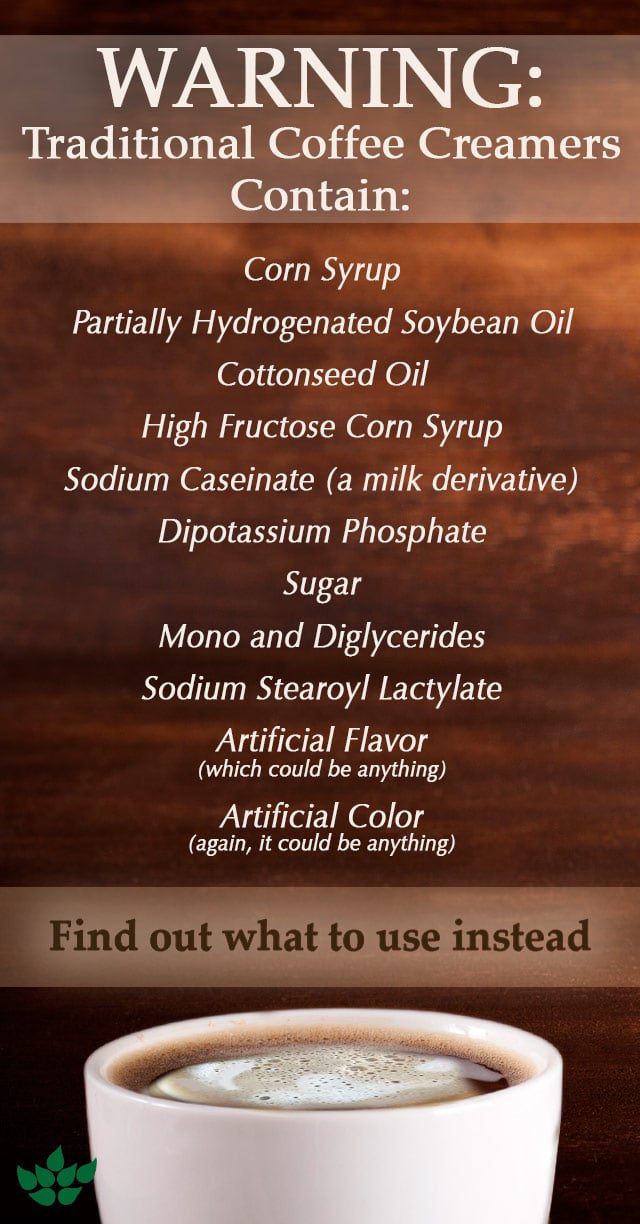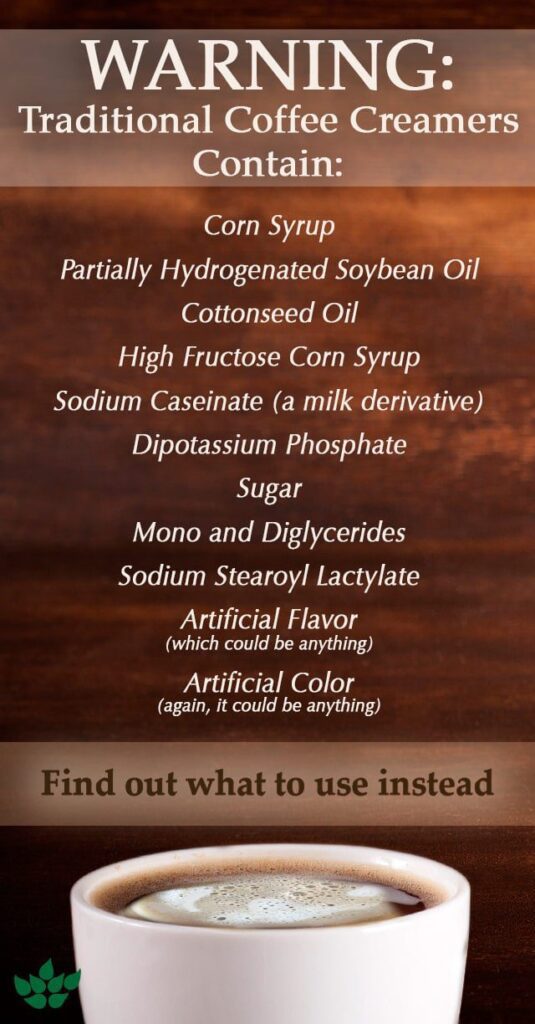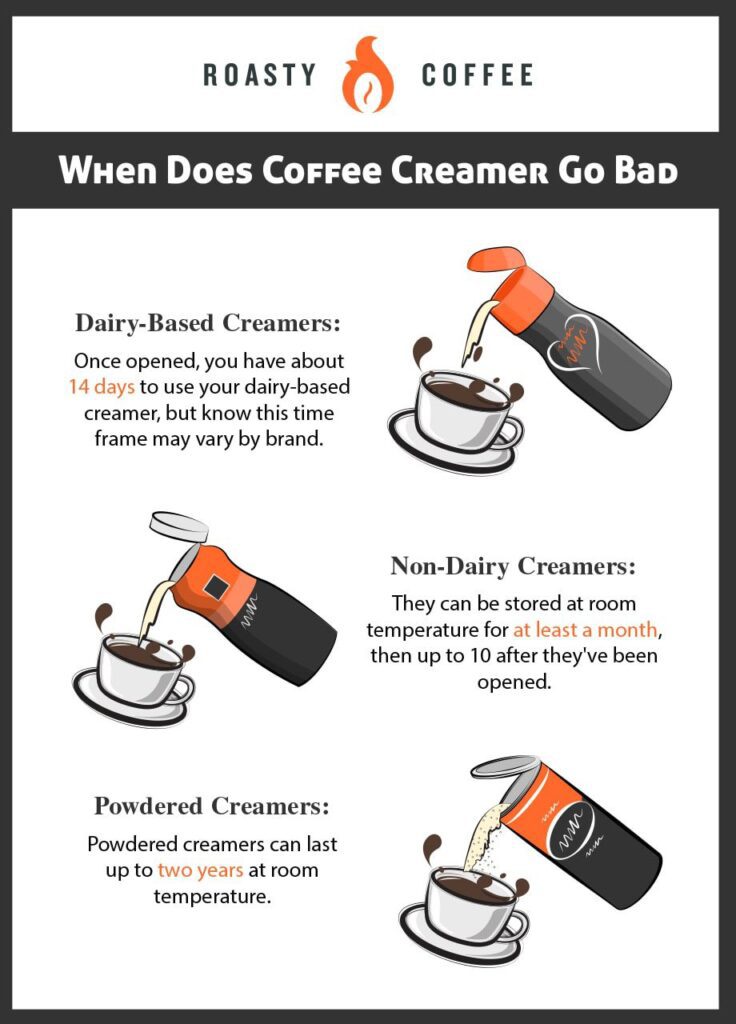Have you ever wondered if your beloved coffee creamer could potentially be harmful to your health?
In this article, we will explore the potential effects of coffee creamer on your well-being.
Whether you are a long-time coffee enthusiast or someone who enjoys an occasional cup, it’s essential to consider the potential drawbacks of adding creamer to your daily dose of caffeine.
So, let’s dig into the topic and uncover the truth behind the question: Is coffee creamer terrible for you?
Overview of Coffee Creamer
Definition of coffee creamer
Coffee creamer is a popular additive used to enhance coffee’s taste and texture. It is a dairy or non-dairy product available in a liquid or powdered form. It is typically added to coffee as a replacement for milk or cream.
Types of coffee creamer
There are various types of coffee creamer available in the market. The most common types include dairy-based creamers, non-dairy creamers, and plant-based milk alternatives.
Dairy-based creamers are made from milk or cream, while non-dairy creamers are typically made from a combination of vegetable oils and additives. Plant-based alternatives, such as almond or coconut milk, can also be used as creamers.
Why do people use coffee creamer
People use coffee creamer for a variety of reasons. Some use it to enhance the flavor of their coffee, making it sweeter or creamier.
Others use it as a substitute for dairy products, especially for individuals who are lactose intolerant or following a vegan or plant-based diet. Coffee creamer also offers convenience, as it is readily available and easy to use.
Ingredients in Coffee Creamer
Common ingredients
Coffee creamers typically contain a combination of ingredients that help to enhance the taste and texture of coffee. Common ingredients include water, sugar, vegetable oil (such as soybean or palm oil), sodium caseinate (a protein derived from milk), and emulsifiers (such as mono- and diglycerides) that help to mix oil and water.
Artificial additives
In addition to the standard ingredients, some coffee creamers may also contain artificial additives. These additives can include artificial flavors, colors, and preservatives. While they are generally recognized as safe for consumption by regulatory authorities, some individuals may be sensitive or have allergies to these additives.
Sweeteners used in coffee creamer
Sweeteners are an essential component of coffee creamer, as they provide the desired level of sweetness. Common sweeteners in coffee cream include sugar, high fructose corn syrup, and artificial sweeteners such as sucralose or aspartame.
It is important to note that using artificial sweeteners may be a concern for individuals looking to reduce their added sugars or those with specific health conditions.
Potential Health Effects
Caloric content of coffee creamer
Coffee creamer can contribute a significant amount of calories to your daily intake, mainly if you use it in large quantities or consume multiple cups of coffee throughout the day.
The caloric content can vary depending on the type of creamer and serving size, but it is generally higher than milk alone.
Impact on weight management
Due to the higher calorie content of some coffee creamers, excessive consumption can contribute to weight gain and make it more challenging to maintain a healthy weight. If you are watching your calorie intake, it is essential to consider how much creamer you use in your coffee and balance it with the rest of your diet.
Effect on blood sugar levels
The high sugar content in some coffee creamers can impact blood sugar levels, especially for individuals with diabetes or those who are sensitive to sugar. It is essential to be mindful of the amount of sugar in your creamer, and if necessary, opt for sugar-free or low-sugar alternatives.
Link to cardiovascular health
Some coffee creamers contain hydrogenated oils, a source of trans fats. Trans fats have been associated with an increased risk of heart disease. While most coffee creamers contain only small amounts of trans fats, it is still essential to be aware of your overall intake, especially if you consume other sources of trans fats in your diet.
Possible effect on gut health
Certain coffee creamers contain additives and artificial ingredients that can potentially disrupt gut health in some individuals. While more research is needed to understand the impact fully, it is worth considering the quality of ingredients in the creamer you choose and how it may affect your digestive system.
Additives and Health Concerns
Hydrogenated oils and trans fats
Hydrogenated oils, often found in coffee creamers, are a source of trans fats. Trans fats have been linked to an increased risk of cardiovascular disease and other health issues. It is essential to read the labels and opt for creamers that do not contain hydrogenated oils or trans fats.
Presence of artificial flavors and colors
Some coffee creamers may contain artificial flavors and colors to enhance their taste and appearance. While these additives are generally considered safe, some individuals may have sensitivities or allergies to them. If you prefer to avoid artificial additives, look for creamers that use natural flavors and colors.
Usage of high fructose corn syrup
High fructose corn syrup (HFCS) is a common sweetener in some coffee creamers. HFCS has been associated with various health concerns, including obesity, diabetes, and metabolic syndrome. If you want to reduce your added sugars intake, it may be beneficial to choose creamers that do not contain HFCS.
Concerns with non-dairy creamers
Non-dairy creamers are often made with vegetable oils and additives to mimic the taste and texture of dairy creamers. Some of these additives, such as carrageenan, have been linked to digestive issues in some individuals. If you have sensitivities or concerns about specific additives, choosing a different type of creamer may be best.
Potential risks of excessive consumption
While coffee creamers can be enjoyed in moderation, excessive consumption can negatively affect health.
Consuming large amounts of creamer can contribute to weight gain, increase your added sugars and unhealthy fat intake, and potentially disrupt gut health. It is important to practice moderation and be mindful of your overall diet.
Alternatives to Coffee Creamer
Natural alternatives
If you prefer to avoid commercial coffee creamers, there are natural alternatives you can consider. Unsweetened almond or coconut milk can be used as a dairy-free option, providing a creamy texture and a hint of natural sweetness. Add a dash of vanilla extract or cinnamon to your coffee for flavor without additional creamer.
Plant-based milk options
Plant-based alternatives, such as almonds, soy, and oats, can be substitutes for dairy-based creamers. These options are typically lower in calories and saturated fat than dairy creamers. They also offer a variety of flavors and options for those with dietary restrictions or preferences.
Homemade coffee creamer recipes
Another alternative to store-bought coffee creamers is to make your own at home. This allows you to control the ingredients and customize the taste to your preference. Many recipes are available online that use natural sweeteners, plant-based milk, and other wholesome ingredients to create a healthier homemade coffee creamer.
Individual Considerations
Lactose intolerance and dairy-based creamers
Individuals who are lactose intolerant may experience gastrointestinal discomfort when consuming dairy-based creamers.
If you have lactose intolerance, choosing lactose-free or non-dairy alternatives is essential to avoid digestive issues. Non-dairy creamers or plant-based milk options can be suitable alternatives.
Impact on vegan and plant-based diets
For individuals adhering to a vegan or plant-based diet, it is essential to choose coffee creamers free of animal-derived ingredients.
Non-dairy creamers or plant-based milk alternatives, such as almond or coconut milk, are suitable for those following these dietary patterns.
Moderation and Portion Control
Recommended serving sizes
It is essential to be mindful of the serving size when using coffee creamers. The recommended serving size of commercial creamers is typically one tablespoon. Using more than the recommended amount can significantly increase your coffee’s calorie, sugar, and fat content.
Choosing healthier creamer options
When selecting coffee creamers, read the labels carefully and choose options lower in calories, added sugars, and unhealthy fats. Opt for creamers that use natural ingredients and minimal artificial additives. Sugar-free or low-sugar options can also benefit those looking to reduce their sugar intake.
Balancing creamer intake in a balanced diet
While coffee creamer can be a tasty addition to your coffee, it is essential to consider how it fits into your overall diet.
If you enjoy using creamer, be mindful of its calorie and sugar content and balance it with other components of your meals and snacks. A balanced diet that includes a variety of nutrient-dense foods will promote overall health and well-being.
Research and Expert Opinions
Scientific studies on coffee creamer
Scientific studies on the specific health effects of coffee creamer are limited. Most studies focus on the impact of specific ingredients, such as sugar or trans fats, rather than the creamers. More research is needed to understand coffee creamers’ potential health effects fully.
Views of healthcare professionals
Healthcare professionals generally advise moderation and mindful consumption of coffee creamer.
They emphasize the importance of reading labels, choosing healthier options, and considering individual dietary needs and preferences. Consulting with a registered dietitian or healthcare professional can provide personalized guidance and recommendations.
Industry perspectives
The coffee creamer industry continues to evolve, offering a wide range of options to meet consumer demands.
Manufacturers are increasingly developing creamers with lower sugar content, natural ingredients, and non-dairy alternatives to accommodate various dietary preferences and health concerns. Consumers must stay informed about new product developments and make choices that align with their needs.
Coffee Creamer and Specific Health Conditions
Impact on individuals with diabetes
Individuals with diabetes must be mindful of their sugar intake and how it affects their blood sugar levels. Choosing coffee creamers that are sugar-free or low in added sugars can be beneficial.
Working with a healthcare professional or registered dietitian is essential to create a personalized meal plan that considers the specific needs and goals of individuals with diabetes.
Considerations for people with heart disease
For individuals with heart disease or a history of cardiovascular issues, it is essential to choose coffee creamers low in unhealthy fats, particularly trans fats.
Opting for creamers that do not contain hydrogenated oils and have a lower saturated fat content is recommended. A heart-healthy diet, rich in fruits, vegetables, whole grains, and lean proteins, should be the foundation of any dietary recommendations for individuals with heart disease.
Association with digestive issues
Some individuals may experience digestive issues, such as bloating or diarrhea when consuming certain coffee creamers.
This may be due to specific additives or ingredients used in the creamer. If you experience digestive issues after consuming coffee creamer, switching to a different type or brand that does not contain the problematic ingredient may be helpful.
Conclusion
Coffee creamer can be a flavorful addition to your morning coffee. Still, it is essential to consider the potential health effects and choose creamers that align with your dietary needs and goals. Although there are concerns about some ingredients and additives in certain creamers, there are also healthier alternatives available.
Natural alternatives, plant-based milk options, and homemade recipes offer a variety of choices for individuals looking to enjoy their coffee without compromising their health.
As with any dietary decision, moderation and mindful consumption are critical. Remember to consult with healthcare professionals or registered dietitians for personalized advice and recommendations.
Nestle Coffee mate Coffee Creamer, Original, Liquid Creamer Singles, Non Dairy, No Refrigeration, Box of 180
Nestle Coffee mate Coffee Creamer, French Vanilla, Liquid Creamer Singles, Non Dairy, No Refrigeration, Box of 180
Nestle Coffee mate Coffee Creamer, Original, Non Dairy Powder Creamer, 56 Ounces (Pack of 2)
Nestle Coffee mate Coffee Creamer, Sweetened Original, Concentrated Liquid Pump Bottle, Non Dairy, No Refrigeration, 50.7 Ounces
$20.82 in stock
Nestle Coffee Mate Coffee Creamer, French Vanilla bottle with Pump, 50.7 Oz
Coffee mate The Original Powder Creamer, 11 oz (Pack of 4) with By The Cup Scoop
$16.95 out of stock






















































